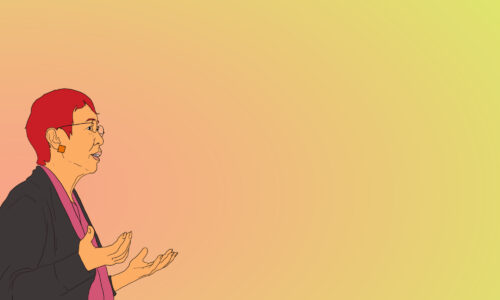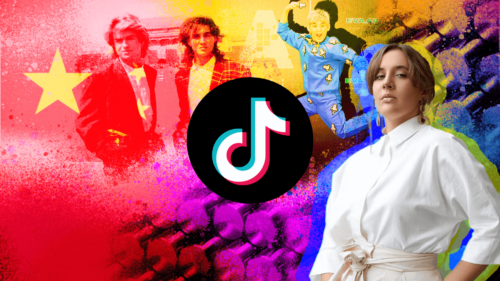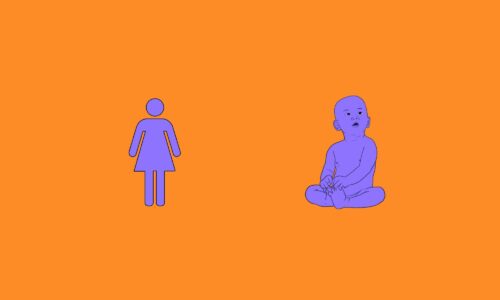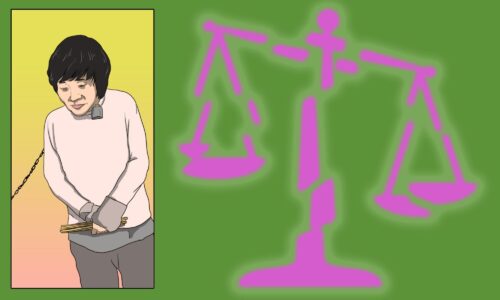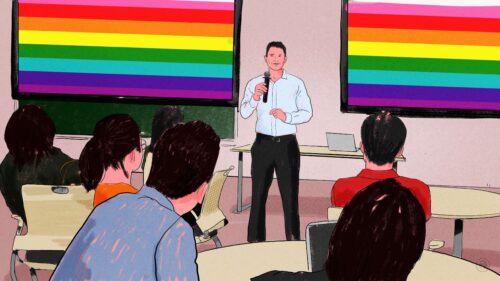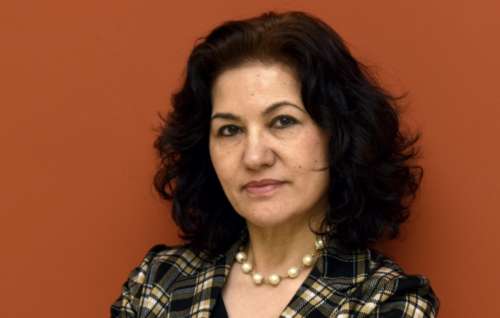Chinese rapper NINEONE# says expressing empathy for men doesn’t make her anti-feminist
She’s a huge star known for her feminist hip-hop lyrics, but now Nǎi Wàn 乃万 a.k.a. NINEONE# is under fire for remarks she made onstage that some women felt undermine their quest for equality.

Another week, another gender debate. Or so it’s beginning to seem when it comes to the Chinese internet, where public outcry over questionable views about gender and women’s roles has become increasingly swift and loud.
This time, the lightning rod is woman rapper Nǎi Wàn 乃万, also known as NINEONE#. Her remarks at a music festival last week about the burdens men face in society touched off a firestorm of controversy. Many commenters, apparently women fed up with China’s retrograde gender dynamics, told the 24-year-old artist to “check her privilege” before preaching her understanding of gender equality.
“Boys have many dreams, too, when they are young, like becoming an athlete or a professional gamer. But when they reach 18, their goals are all about buying a house and a car,” Nai said (in Chinese) onstage last Sunday, suggesting that because men are traditionally expected to be the primary breadwinner in a relationship, they have to let their passion take a backseat when choosing careers.
And in order to free men from this dilemma, the musician went on to urge girls to have “more consideration and tolerance” for the boys they love, so that they can continue to pursue their aspirations. “Girls need to stay true to themselves as well. That’s what gender equality is really about,” she added.
Her comments prompted an immediate backlash. “Disappointed” was how most critics felt. “Annoyed” was another. “Exasperated” rounded out the trifecta.
Many argued that while Nai, presumably in good faith, wanted women to approach gender issues with a more balanced perspective and exercise sympathy for men, it was ignorant and offensive for her to ask women, who are systematically undervalued and dismissed in society, to be more understanding of men’s struggles and problems.
“In a world where women and girls continue to be discriminated against, denied equal opportunities in education and employment, subjected to violence, and excluded from positions of leadership and decision-making, hearing a popular female celebrity calling on women to be more empathic to men angered me tremendously,” one Weibo comment read (in Chinese). Another woman wrote (in Chinese), “When men enjoy their privilege at our expense, I don’t see any of them calling out sexism and misogyny on behalf of women.”
Some also pointed out that the premise of Nai’s argument — that women are to blame for ruining men’s dreams — is flawed on multiple levels. “Nearly everyone is dealing with financial pressures. It’s not a concern exclusive to men. So blame society, not women, for making it hard for you to buy homes and cars,” wrote (in Chinese) a Weibo user. Another one noted (in Chinese), “If you are a man who’s broke and you take it as a hit to your masculinity, maybe it’s time to check your sense of self-worth. And if you think women are the ones blocking your way up, maybe you are just a misogynist.”
Others took issue with Nai’s obliviousness to the shifts in gender roles in China, especially at a time when Chinese women are gaining more economic power and buying homes at a higher rate than their male counterparts. “She made it sound like women depend on men to buy property and cars, which couldn’t be more opposite of what the reality is,” one person wrote (in Chinese).
Nai is one of the most popular female rappers in China. She ascended to stardom after appearing on hit reality show The Rap of China in 2019. In 2020, she participated in idol survival show Youth With You as a contestant. Feminism and self-empowerment have been recurring themes in her songs, in which she encourages female listeners to achieve financial independence and be comfortable in their own skin.
Nai’s recent remarks have made her fans question her views on feminism and gender equality, but she refused to back down. “You can keep skewering me, but you won’t put out the fire in my eyes and in my heart. I’m 24 now and I’ve done everything with a clear conscience,” she hit back (in Chinese) at a critic on Weibo. In another Weibo post, she declared that she wouldn’t bow down to what she thought was trolling. “I won’t give in because I’ve done nothing wrong,” she wrote (in Chinese).
With the plight of the women and feminist movements at the forefront of public consciousness, more and more public figures in China have felt comfortable sharing their opinions on gender topics or breaking boundaries and empowering women through their work. But not all of these endeavors were received positively. Last month, pop singer Jíkè Juànyì 吉克隽逸 came under fire (in Chinese) for writing on social media that she advocated for “gender equality, not feminist causes” after being invited to a United Nations event on gender discrminiation. Last year, megawatt internet celebrity Jiāng Yìlěi 姜逸磊, who for years had been making videos from a feminist perspective, faced an intense backlash after followers found that she had given her baby her husband’s last name, a choice they considered to be an affront to their feminist values.

